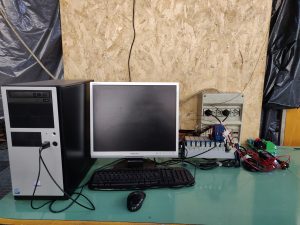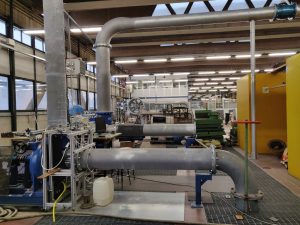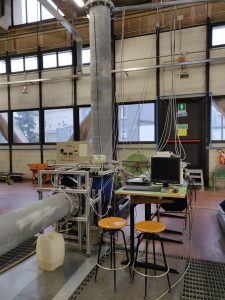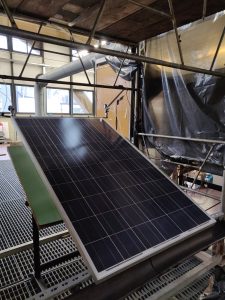Macchine a Fluido e Sistemi Energetici

Responsabile: Prof. Guido Ardizzon, PO, Dipartimento di Ingegneria Industriale
Composizione del GRE:
- Guido Ardizzon, PO
- Alberto Benato, RTDb
- Giovanna Cavazzini, PA
- Giorgio Pavesi, PA
- Anna Stoppato, PA
Aree di ricerca di afferenza:
- Scenari energetici e Politiche energetico/ambientali
- Sistemi di accumulo energetico
- Smart Grid
- Tecnologie per il risparmio energetico
- Valutazione economica delle risorse ambientali ed energetiche
Attività:
The Turbomachinery & Energy Systems (TES) Group ’s main research activities are in the following fields:
- Design, optimisation, CFD analysis and experimental tests of fluid machines (pumps, hydraulic turbines, compressors, fans, wind turbines, etc.);
- Optimisation of design and management of hybrid energy systems with consolidate and innovative methods;
- Design and optimisation of Waste Heat Recovery Units (e.g. Organic Rankine Cycle), Waste Heat to Power Conversion Generators and Waste Heat to Thermal Conversion Systems;
- Pumped Hydro Energy Storage units: configuration and management strategy optimisation;
- Conceptualisation and optimisation of innovative Energy Storage Units: Pumped Thermal Energy Storage Systems;
- Development and test of reliable and low-cost systems to cool Photovoltaic Panels;
- Energy systems dynamic analysis
- Life Cycle Assessment;
- Assessment of power plants environmental impact;
- Consulting, innovation and R&D activities for Italian and International companie
The group members are also involved in teaching activities in the following courses:
- Applied Energy – MSc in Energy Engineering;
- Cogeneration and Combined Plants – MSc in Energy Engineering;
- Energy Conversion Systems and Machines – BSc in Energy Engineering;
- Energy Conversion Systems and Machines 1 – BSc in Mechanical Engineering;
- Energy Conversion Systems and Machines 2 – MSc in Mechanical Engineering;
- Internal combustion engines – MSc in Mechanical Engineering;
- Thermofluidodynamics of Machines – BSc in Mechanical Engineering;
- Wind and hydraulic turbines – MSc in Energy Engineering;
L’elenco delle ultime cinque pubblicazioni
- Benato A., Stoppato A. (2018), “Energy and cost analysis of an Air Cycle used as prime mover of a Thermal Electricity Storage”, Journal of Energy Storage, Volume 17, June 2018, Pages 29–46, DOI: 10.1016/j.est.2018.02.007
- Benato A. (2018), “Improving the efficiency of a cataphoresis oven with a cogenerative organic Rankine cycle unit”, Thermal Science and Engineering Progress, Volume 5, March 2018, Pages 182-194, DOI: 10.1016/j.tsep.2017.11.003
- Schiro F., Stoppato A., Benato A., Destro N. (2017), “Improving Photovoltaics Efficiency by Water Cooling: Modelling and Experimental Approach”, Energy, Volume 137, 15 October 2017, Pages 798-810, ISSN: 03605442, eISSN: 1873-6785, DOI: 10.1016/j.energy.2017.04.164
- Benato, A. (2017), “Performance and Cost Evaluation of an Innovative Pumped Thermal Electricity Storage Power System”, Energy, Volume 138, 1 November 2017, Pages 419-436, ISSN: 03605442, eISSN: 1873-6785, DOI: 10.1016/j.energy.2017.07.066
- Rossetti Antonio, Alarico Macor, Alberto Benato (2017), “Impact of control strategies on the emissions in a city bus equipped with power-split transmission”, Transportation Research Part D: Transport and Environment, Volume 50, January 2017, Pages 357-371, ISSN: 13619209, DOI: 10.1016/j.trd.2016.11.025
Contatti:
- Sede: Dipartimento di Ingegneria Industriale, Sede V, Via Venezia, 1 – 35131, Padova.
- Telefono: 049 827 6752
- Mail: alberto.benato@unipd.it
- Sito web del Gruppo: http://tes.dii.unipd.it
- Sito web del Gruppo: http://www.dii.unipd.it/macchine-fluido-e-sistemi-energetici
Laboratory of fluid machines and energy systems
- The Laboratory of Fluid Machines and Energy Systems was funded in 1974 and its main activities are teaching, research and service in the field of rotating fluid machines such as hydraulic turbines, pumps and pump-turbines.
- Both theoretical and experimental aspects are investigated with a particular emphasis on industrial applications such as design, installation and operation of hydraulic machines.
- The Laboratory is equipped with an open turbomachinery facility (OTF), consisting of a water test rig designed to test the influence of several parameters on the overall performance of pumps, turbines and pump-turbines.
- Besides the OTF, in 2017, a PV cooling system test rig has been set up. The cooling system effects in terms of temperature reduction, surface cleaning and electricity production are estimated by means of multiple sensors while measurements are acquired through in-house Labview codes. The influence of pump consumption and efficiency are also evaluated on yearly base to estimate real benefits made by cooling system.










